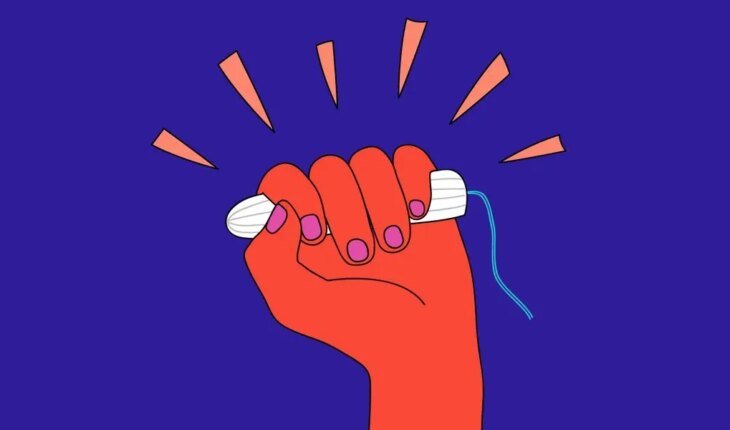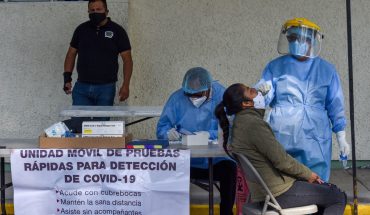Menstruation is a factor of inequality. In Argentina, around 12 million individuals, including girls, adolescents, women, trans men, and non-binary people, experience the menstrual cycle. Despite being a biological process that is as natural as it is universal, it continues to be a social indicator that highlights and perpetuates gender gaps. Expensive access to menstrual management products (PGMs) and a lack of sex education hinder the ability to get through periods safely, dignified, and freely. In this context, there is therefore an urgent need not only to banish the associated cultural stigma, but also to establish solid and sustainable public policies that address the problem in its entirety. According to Marcela Cortiellas, National Director of the Articulation of Comprehensive Equality Policies, “menstruation requires an economic investment that makes it difficult for thousands of women and LGTBI+ people to properly manage their cycle”. The use of PGMs, such as tampons and disposable wipes, is disproportionately expensive, with average commodity prices exceeding by 30%. Recent data presented by the Ministry of Economy of the Nation reveal that the annual expenditure for menstrual management is $10,915 per person, an amount that represents a figure close to the monthly total of the Universal Child Allowance ($11,465 in March 2023). “Today, it is estimated that a person spends around 1,500 pesos per month on menstrual products, a calculation that is subject to constant variations due to the level of inflation that our country is going through. However, it is important to note that this amount only considers the fundamental products for menstrual management,” says Laura Testa, economist and advisor to the Senate, and clarifies: “If we include products to relieve pain, such as oreganol or other similar medications, the cost increases considerably. This expansion in the list of products needed for menstrual care is a significant additional expense for menstruating people.” In the same vein, Cortiellas highlights: “We menstruate for approximately 40 years, once a month. The cost of menstruation weighs heavily on the incomes of the most vulnerable sectors. There is usually not only one menstruating person in households, so the financial inequality gap is considerable.” And, unfortunately, it goes beyond the purely economic realm. Irina Perl, head of the Menstrual Management Line of the Ministry of Women, Gender and Diversity of the Nation, comments: “Equal access to menstrual management products enables the full exercise of fundamental rights, such as education, employment and health. In this way, we encourage the equal participation of menstruating people in the social and political life of their communities.” Is menstruation an obstacle? If we focus on the field of education, it is estimated that globally 1 in 5 girls, adolescents and menstruating minors miss school during their period. The fear of stigma, the absence of hygienic resources such as water or adequate spaces to change, physical pain and lack of access to products, lead these young people to be absent during their menstruation. The long-term impact is reflected in a deterioration in academic performance, an increase in emotional distress and increased risks of dropping out of school, thus widening the gender disparity. According to the U-Report report entitled “Challenges faced by adolescent girls in their menstrual management” (UNICEF, 2021), about 10% of the more than 1,000 people surveyed admitted to missing school during their cycle, while 23% expressed feeling discomfort or embarrassment during this period. These data coincide with those obtained through the First Menstrual Management Survey conducted by the Ombudsman’s Office of the Province of Buenos Aires in 2020. In the study, almost half of the participants reported that they had stopped attending educational institutions (47.9%), as well as reduced their participation in social events (43.9%). In addition, more than two-thirds of respondents (75.6%) stopped playing sports. The right to information is compromised in the context of menstruation, directly impacting the opportunities of menstruating individuals. The lack of data on menstrual health, the availability of services to address associated problems, and the lack of knowledge about the supplies needed to maintain proper hygiene during periods limit their opportunities. It is a reality that reveals a health problem. “Lack of education leads to the use of Inadequate alternatives end up being very harmful,” explains Testa. Limiting the availability of suitable options can lead to extreme choices in the choice of improvised and unhygienic products, increasing the risk of infections and long-term complications. The future of menstrual management policies in Argentina”It is highly harmful to ignore these practices, as this implies overlooking a reality that affects a large part of the population. If almost 40% of this group lives in poverty, this issue should be considered a public health issue, with relevance and government management,” says the economist. However, how is the State addressing this problem? At the national level, we have the MenstruAR Program, established by the Ministry of Women, Gender and Diversity, which supports and strengthens local initiatives in menstrual management. The project focuses on promoting the production and use of sustainable products for menstrual management, including the distribution of menstrual cups in provinces and municipalities. The main objective is to ensure fair access to necessary supplies and information for all menstruating people. In addition, training and comprehensive sexuality education programmes are being carried out for civil servants at various levels, as well as for community promoters. “This allows us to dismantle the negative or stigmatizing social and cultural perspective associated with menstruation, in order to address it from a rights-based perspective,” says Cortiellas.Within the framework of the initiative, two materials were developed in collaboration with the SES Foundation and with the support of UNFPA: a “Diagnosis on the use and perception of menstrual management supplies” and a booklet entitled “Menstrual Management as a Right”. As part of these actions, menstrual cups are distributed to the municipalities for subsequent delivery to the population, accompanied by training for promoters in their use. A follow-up survey was also conducted on their use. In addition, communication materials were created and research was conducted on the use and perception of menstrual management products. With the upcoming assumption of the government led by Javier Milei, uncertainties are generated regarding the continuity and promotion of public policies related to menstrual management. The National Director expressed her concern about the possible interruption of these measures: “We believe that the State must be a guarantor of rights and promote the reduction of inequality gaps until they are eradicated. We are concerned that they will not have continuity as this would affect the most vulnerable people.” It is essential that the State continues to strengthen and promote inclusive public policies that guarantee these basic rights for all menstruating people in the country. “The trivialization, harassment and violence on our agendas has terrible consequences on women and diversities. It would be a huge step backwards to dismantle what we have achieved so far. It is always from the State, from the institutionality at the federal level that we can level the existing correlation of power, that we can guarantee equal opportunities to build a more just, egalitarian and violence-free society,” concludes Cortiellas.
Menstruation: A Key Driver of Inequality Requiring Policy Action
December 1, 2023 |





